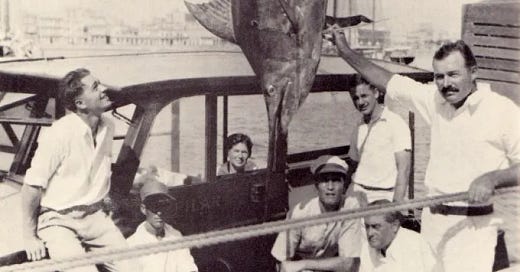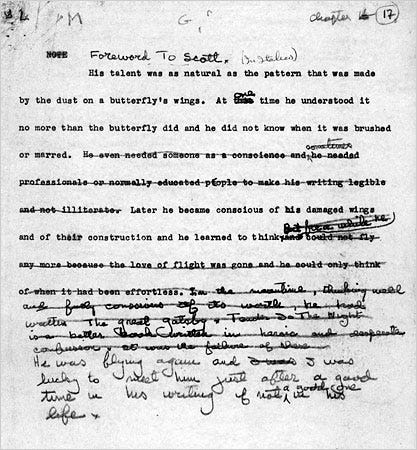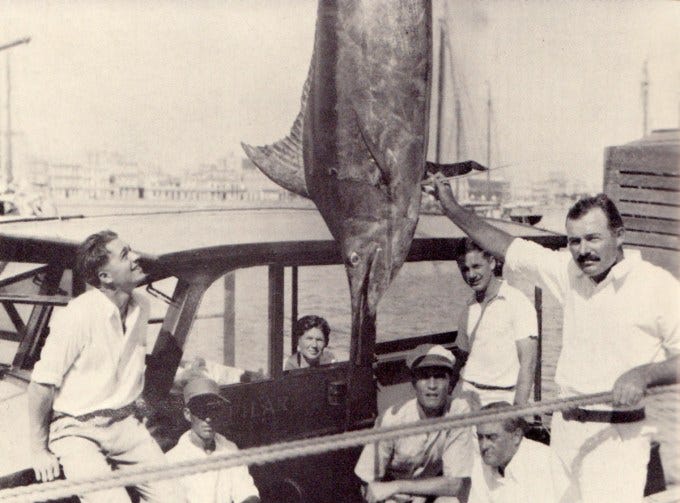The most important thing I’ve learned about writing is never write too much at a time… Never pump yourself dry. Leave a little for the next day. The main thing is to know when to stop. Don’t wait till you’ve written yourself out. When you’re still going good and you come to an interesting place and you know what’s going to happen next, that’s the time to stop. Then leave it alone and don’t think about it; let your subconscious mind do the work. -Ernest Hemingway
We are so fortunate to be privy to some of the excellent advice given to a young Arnold Samuelson, aspiring writer, by Ernest Hemingway, https://www.publicationcoach.com/arnold-samuelson/
His first draft was a prose outline of the story, written very simply. Like many Hollywood writers, he found it to be helpful to begin this way and then simply go back and flesh out the pages.
Hemingway lays out his strategy:
The next morning, when you’ve had a good sleep and you’re feeling fresh, rewrite what you wrote the day before. When you come to the interesting place and you know what is going to happen next, go on from there and stop at another high point of interest. That way, when you get through, your stuff is full of interesting places and when you write a novel you never get stuck and you make it interesting as you go along. Every day go back to the beginning and rewrite the whole thing and when it gets too long, read at least two or three chapters before you start to write and at least once a week go back to the start. That way you make it one piece. And when you go over it, cut out everything you can. The main thing is to know what to leave out. The way you tell whether you’re going good is by what you can throw away. If you can throw away stuff that would make a high point of interest in somebody else’s story, you know you’re going good.
Encouragement:
Don’t get discouraged because there’s a lot of mechanical work to writing. There is, and you can’t get out of it. I rewrote A Farewell to Arms at least 50 times. You’ve got to work it over. The first draft of anything is shit. When you first start to write you get all the kick and the reader gets none, but after you learn to work it’s your object to convey everything to the reader so that he remembers it not as a story he had read but something that happened to himself. That’s the true test of writing. When you can do that, the reader gets the kick and you don’t get any. You just get hard work and the better you write the harder it is because every story has to be better than the last one. It’s the hardest work there is.
I like to do…many things better than I can write, but when I don’t write I feel like shit. I’ve got the talent and I feel that I’m wasting it.
When asked how you know if you have talent?
You can’t. Sometimes you can go on writing for years before it shows. If a man’s got it in him, it will come out sometime. The only thing I can advise you is to keep on writing but it’s a damned tough racket. The only reason I make any money at it is I’m a sort of literary pirate. Out of every ten stories I write, only one is any good and I throw the other nine away.
On comparing yourself to others:
Never compete with living writers. You don’t know whether they’re good or not. Compete with the dead ones you know are good. Then when you can pass them up you know you’re going good. You should have read all the good stuff so that you know what has been done, because if you have a story like one somebody else has written, yours isn’t any good unless you can write a better one. In any art you’re allowed to steal anything if you can make it better, but the tendency should always be upward instead of down. And don’t ever imitate anybody. All style is, is the awkwardness of a writer in stating a fact. If you have a way of your own, you are fortunate, but if you try to write like somebody else, you’ll have the awkwardness of the other writer as well as your own.
Beware of the envy success brings:
When you start to write everybody is wishing you luck, but when you’re going good, they try to kill you. The only way you can ever stay on top is by writing good stuff.






It's an accident of fate that we have Hemingway's private thoughts on writing!
Great advice indeed, Laura! Thank you so much for sharing this!